The Ilemi region has been described as a ‘Triangle’, located where Kenya, South Sudan and Ethiopia interface with each other. This ‘Ilemi Triangle ‘measures approximately 14,000 square kilometers (about the size of Northern Ireland). It has been a bloody battlefield for ethnic communities living in and straddling the borders of the three countries in this region, (Turkana from Kenyan side, Toposa from South Sudan side and Dassanech and Nyangatom from Ethiopia side), (Devine 2009). The inter-ethnic relationships of these pastoralist communities have been affected by lack of basic human necessities concerning issues of security, education and medical care. The region is also grappling with practically no infrastructure, not even one tar road, that further compounds the suffering of the people.
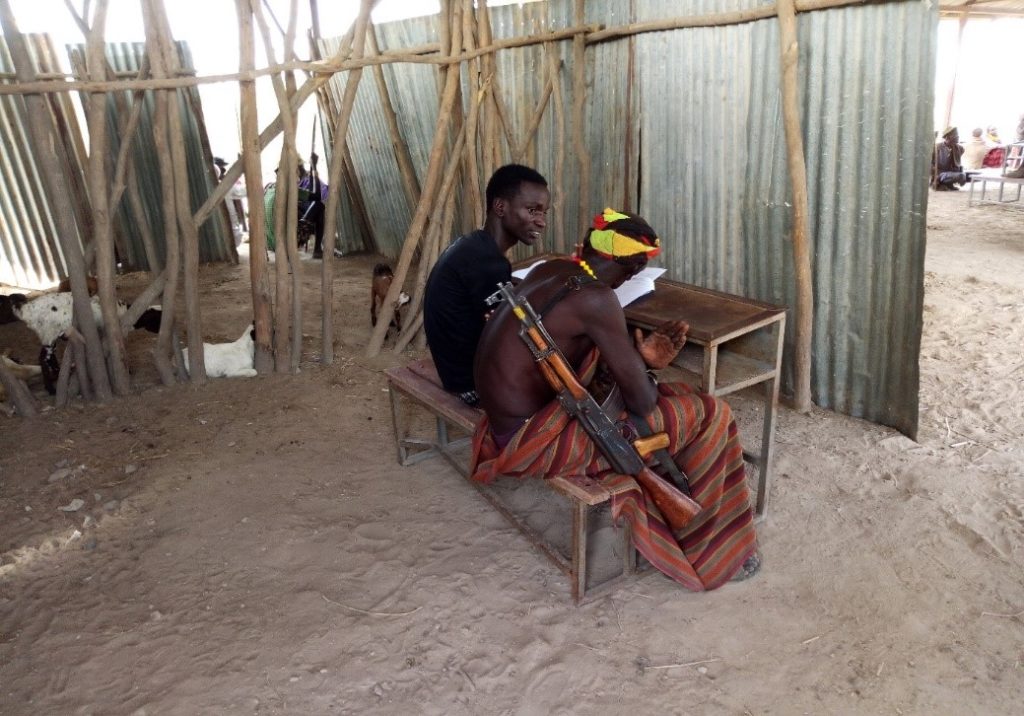
The harsh weather condition in this region characterized by the scorching sun and limited rainfalls, makes it difficult for locals to engage in farming or even have fresh drinking water. It is very difficult for families and children to actualize even a fraction of their potential. ‘Arm-chair generals’ hypothesizing from afar, or written documents about ‘justice and peace’ that are never transmitted into action by qualified personnel, have miniscule effect on these conflicts.
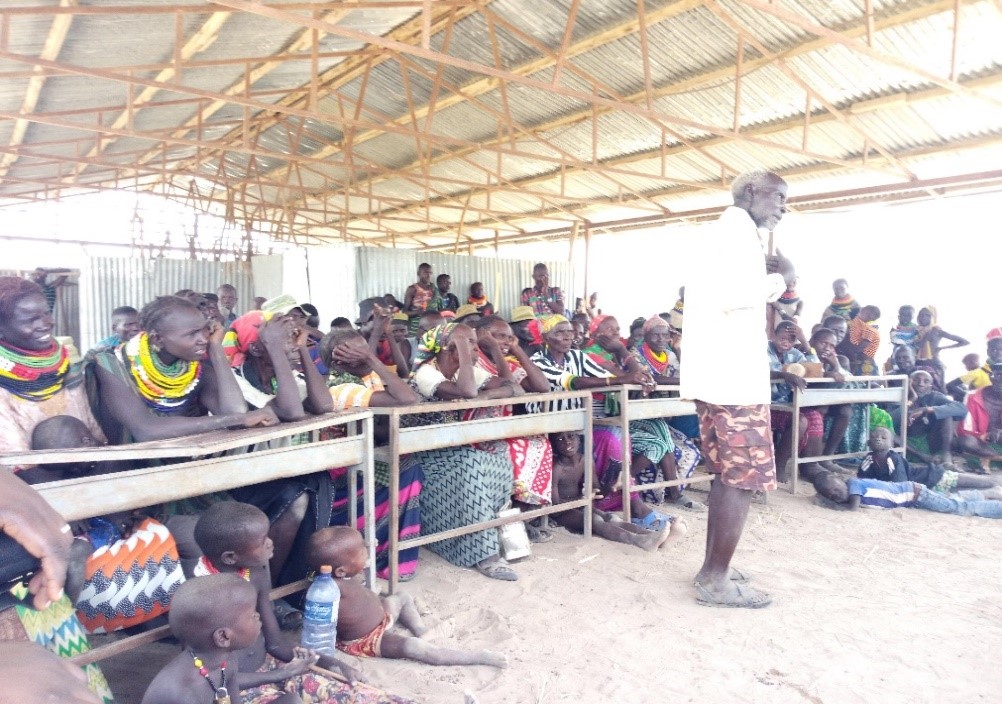
This region has witnessed protracted conflicts which goes back many years. Besides, there are century-old contentious territorial claims about which country the Ilemi Triangle actually belongs to.
One of the earliest preliminary research incursions into this area, focusing on the Turkana- Dassanech conflict was conducted by Shalom’s Director of Research Prof. Omoka, Rev. Oliver Noonan, MA Country Director and our Chairman Rev. Dr. Patrick Devine from 2008-2010. This research was the basis for some of Shalom-SCCRR’s much valued initial mediation interventions in the region since 2010. Shalom, with its highly qualified team has been at the forefront assisting the Turkana people and their neighbors since then.
Tribal conflicts in Eastern Africa, where Shalom works, are frequently impacted by a variety of factors in the domains of governance, religion, historical marginalization and tribal ethnocentrism among others. Human rights and dignity are severely attacked in the struggle to actualize their potentials and meet their basic needs. This contravenes international human rights standards as set by the Universal Declaration of Human Rights and related conventions (Chatter of the United Nations 1945 and Universal Declaration of Human Rights 1948).
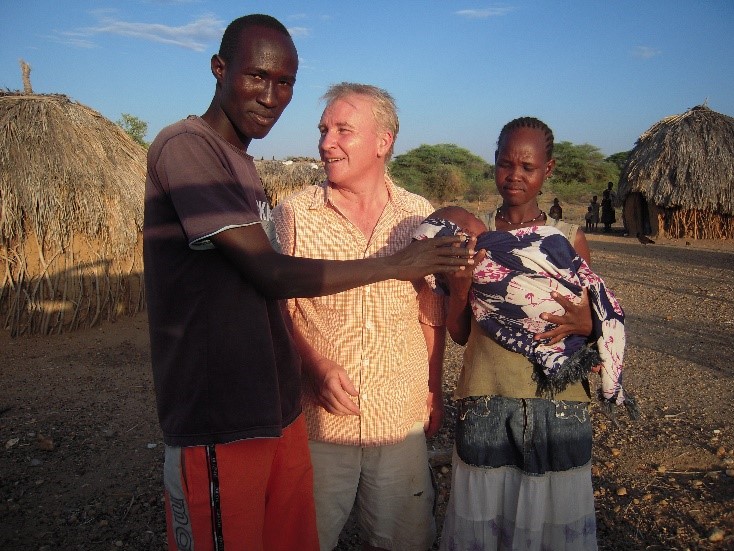
The conflict in the Ilemi has been frequently linked to issues of access to pasture and water. However, the causes and persistence of the conflict are much more variable and complex. Some of the critical factors underlying this interethnic-tribal conflict are institutional neglect, access to resources such as pasture and water, international boundary uncertainties, ineffectiveness of traditional conflict management mechanisms, social economic and political economy issues relating to the commercialization of livestock raiding/arms proliferation. The dynamics of this conflict have claimed many lives, generated incalculable post-traumatic stress disorder, paralyzed development programs, destabilized Schools and hospitals and destroyed many households.
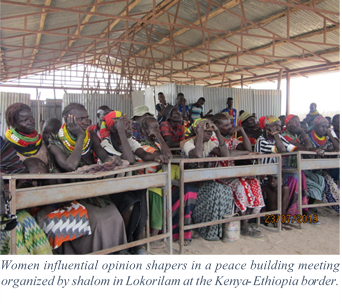
Over the years, SCCRR-Shalom has progressed the peace quotient by empowering the communities with conflict transformation skills, peacebuilding techniques, and intertribal institutional development. These interventions were bed-rocked on the empirical research of the root causes of interethnic conflict in the Ilemi Triangle. Empirical research is fundamental to determining the factual underlying causes of conflicts between conflicting tribes/communities. After establishing conflict causal factors between these tribes/communities, Shalom embarks on a conflict transformation, resolution and reconciliation mission with these communities and all stakeholders through a series of trainings in conflict transformation and peacebuilding.
This methodology has attracted attention and invitations from prestigious academic institutions in Africa and around the world, such as Tangaza University Collage-Catholic University of Eastern Africa, AMECEA conference at the United Nations Center Ethiopia, Harvard University School of Law-Negotiation-Mediation Program, DePaul University Chicago, University of Texas at Austin, Senator George J. Mitchell Institute for Global Peace, Security and Justice, at Queen University N. Ireland, Edward Kennedy Institute for Conflict Intervention at National University of Ireland, Maynooth and numerous media contributions in Asia, Australia, Africa and Europe.
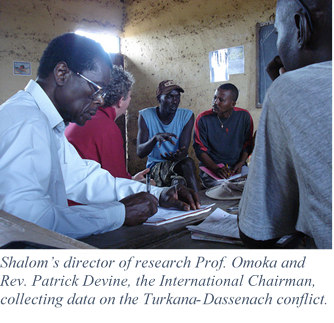
The main aim of Shalom’s intervention is to help tribes/communities bring about peaceful cooperation, empowering their men and women influential opinion-shapers to be the architects of their interdependent future. Notwithstanding many successful developments, there have been some setbacks and much more needs to be done urgently. People continue to be killed in intertribal attacks, many have migrated in fear of attacks and residents still live in dread of reprisals from their enemies.
The region has also been affected by State projects such as the irrigation schemes and the Gibe III dam (electricity power generation project) in the Ethiopian side a few kilometers from the international border (Survival International). Shalom-SCCRR is persistently in the conflict zones researching the conflict issues as a vital prerequisite to its modus operandi of intervention. It is also necessary to be knowledgeable of the changing manifest conflict dynamics.
Shalom works hand in hand with the local communities seeking to transform the conflicts from violence to negative peace and then on to positive peace where all sides are committed to the mutual security, development and wellbeing of each other. SCCRR-Shalom in collaboration with all stakeholders in these communities is committed in helping them find a lasting solution to their conflict. SCCRR-Shalom appreciates the fact that the journey to reconciliation, healing, repair, and transformation is not a single event but an ongoing endeavor. This process will eventually require a cultural transformation of people’s lifestyles and mindsets. Such a process, therefore, requires that all stakeholders be involved in coming up with the solutions.
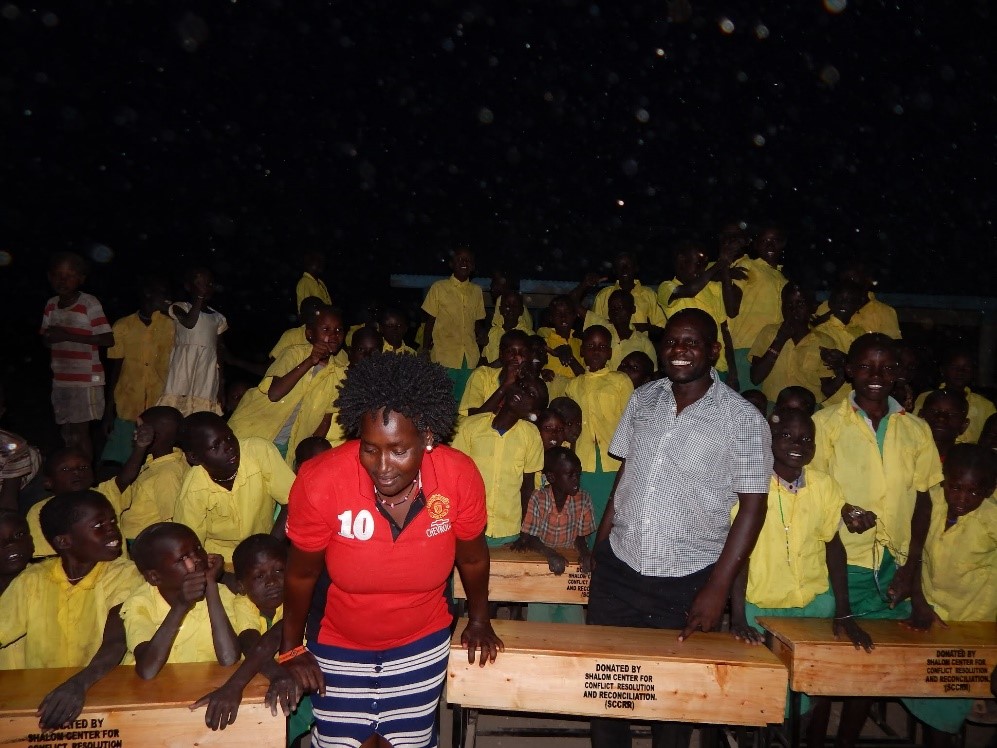
Theory and Practice needed to be operational in tandem. SCCRR is totally committed to this process plus enabling the communities in inter-tribal institutional developments: Schools – providing them with books, Solar panels for lighting, renovation and construction of classrooms, fences, sanitary facilities, attending to gender specifics, drinking water, and dormitories; Medical Amenities – providing them with modern equipment to boost their capabilities; among others. This goes a long way in helping them not only to practice tolerance and live together in peace with one another but to unite their strength to progress sustainable peacebuilding and development.
Shalom continues to seek donations towards its work to help its transformative work in some of the most abandoned areas in the world. See website www.shalomconflictcenter.org to Donate.
Reference.
Charter of the United Nations. (n.d). Retrieved August 15, 2019, from https://www.un.org/en/charter-united-nations/index.html
Devine, P., (2009). Turkana – Dassanech conflict: Causes and Consequences. (Unpublished master’s dissertation). Hekima Institute of Peace Studies and International Relations (HIPSIR), Catholic University of Eastern Africa, Nairobi, Kenya. Available at:
http://hipsir.hekima.ac.ke/images/stories/downloads/Newsletters/Peace-Dialogue-Issue-19.pdf
Guo R. (2007). Territorial Disputes and Resource Management. Retrieved August 15, 2019, from; https://books.google.co.ke/books?id=z5Le627xQLgC&pg=PA139&dq=size of ilemi triangle.
International, S. (n.d.). Omo Valley Tribes. Retrieved August 15, 2019, from https://www.survivalinternational.org/tribes/omovalley/gibedam.
Lederach, J. P. The Little Book of Conflict Transformation. Intercourse, PA: Good, 2003.
U.N. Universal Declaration of Human Rights. Retrieved August 13, 2019, from https://www.un.org/en/universal-declaration-human-rights/
By ;
Austin Ngacha Macharia, MA, Project Team Leader (Ilemi Project)
SCCRR-Shalom Communications Department

